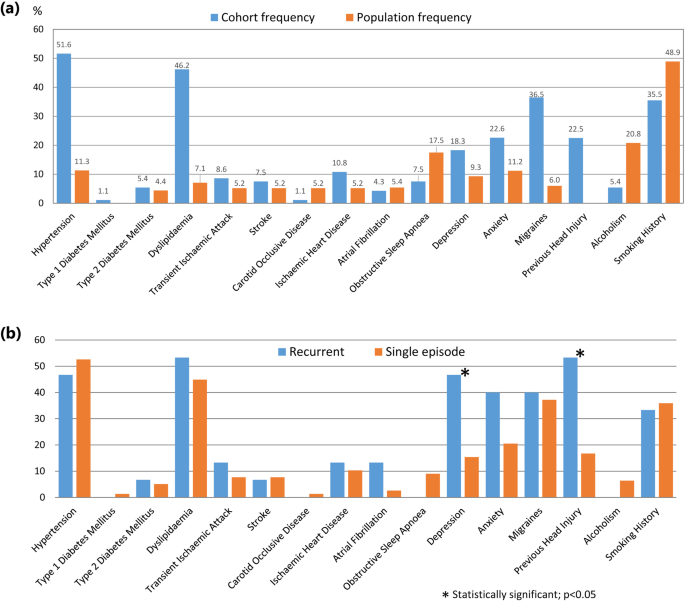
Memory Loss: Understanding Amnesia (Part 1- Retrograde)
- carolinecannon20080
- Feb 18
- 4 min read
Memory Loss: Understanding Amnesia (Part 1- Retrograde)
Amnesia is a complex condition that results in the loss of memories, affecting a person's ability to recall past events or form new memories. There are two primary types of amnesia: retrograde and anterograde. Both types can have profound effects on a person’s daily life, relationships, and sense of identity. In this blog, we will delve into the causes, symptoms, and impacts of retrograde amnesia, exploring how they alter a person's experience of reality. Read part one of Memory Loss: Understanding Amnesia to learn more about this medical condition that impacts many.
What is Amnesia?
Amnesia is a condition characterized by memory loss that can affect a person’s ability to recall past experiences or form new memories. It can be caused by a variety of factors, such as brain injury, trauma, disease, or psychological stress. People with amnesia may lose memories of events, people, and places from their past (retrograde amnesia) or they may struggle to create new memories after the onset of the condition (anterograde amnesia). The severity and duration of amnesia can vary, with some people experiencing temporary memory loss, while others may have long-term or permanent impairment. Amnesia can significantly impact daily life, relationships, and a person's sense of identity.
Retrograde Amnesia:
What is Retrograde Amnesia?
Retrograde amnesia, in simple terms, is a form of memory loss that makes it difficult or impossible for people to recall memories of the past. Retrograde amnesia is sometimes temporary but can also be permanent or progressive. The severity and duration of this type of amnesia depend on what is causing it.
What Causes Retrograde Amnesia?
There are several conditions that can cause retrograde amnesia. Most of these conditions root from damage to different parts of the brain responsible for controlling emotions and memories. These parts of the brain include of the thalamus (located in the center of the brain) and the hippocampus (located in the temporal lobe).
· Traumatic Brain Injuries- Most traumatic brain injuries are mild, resulting in concussion. But a severe injury, like a serious blow to the head, can damage the memory-storing areas of the brain and lead to retrograde amnesia. Depending on the level of damage, the amnesia could be temporary or permanent.
· Encephalitis- Encephalitis is inflammation in the brain caused by a viral infection, such as herpes simplex. It can also be caused by a cancer-related or non-cancer-related autoimmune reaction. This inflammation can cause damage to the memory-storing parts of the brain.
· Alzheimer’s Disease- Alzheimer’s disease and other degenerative dementias can lead to progressively worsening retrograde amnesia. There is currently no cure or treatment for this disease
· Stroke- Both large strokes and repeated small strokes can cause damage to the brain. Depending on where the damage occurs, memory problems may result. It’s common for strokes to lead to memory problems and even dementia. Two types of memory that can be affected by stroke include verbal memory and visual memory.
· Seizures- Any type of seizure can cause damage to the brain and cause memory problems. Some seizures affect the whole brain and some only affect a small area. Seizures in certain parts of the brain, especially the temporal and frontal lobes, are a common cause of memory problems in people with epilepsy.
· Cardiac Arrest- This people to stop breathing, which means their brain may be deprived of oxygen for several minutes. This can lead to serious brain damage, which may cause retrograde amnesia or other cognitive deficits.
Symptoms and Impacts of Retrograde Amnesia
The symptoms that come from suffering with retrograde amnesia can vary depending on the nature and severity of the injury. Common signs that a person may experience include:
· Not being able to remember events that occurred before amnesia
· Forgetting facts and general knowledge
· Not being able to remember names, faces, places, dates, and other facts that were learned before the injury occurred
Retrograde Amnesia Treatments
Unfortunately, like many cognitive health conditions, there isn’t a known cure to retrograde amnesia. However, there are treatments and approaches aimed at managing the condition and improving memory function.
· Cognitive Rehabilitation Therapy (CRT)- involves exercises and activities to help patients regain lost memories and improve cognitive function. It focuses on memory retraining, learning strategies, and problem-solving skills.
· Medications for Memory Enhancement- Drugs such as donepezil (Aricept) or memantine (Namenda), commonly used in Alzheimer’s treatment, can sometimes help improve cognitive functions and slow down memory decline, though their effectiveness for retrograde amnesia varies.
· Memory Aids & External Tools- Using calendars, notebooks, smartphones, and reminder systems can help patients manage daily activities and assist in memory recall.
· Therapeutic Approaches (Psychotherapy)- Cognitive-behavioral therapy (CBT) and other psychotherapy forms may help patients cope with the emotional effects of memory loss and work on strategies to enhance memory retrieval.
· Good Diet- A diet rich in antioxidants, omega-3 fatty acids, and vitamins (like B12 and folate) can support brain health. Supplements and foods like fish, leafy greens, and berries are often recommended to help maintain cognitive function.

Citations:
Eleesha Lockett, MS. “Retrograde Amnesia: Definition, Symptoms, and Treatment.” Psych Central, Psych Central, 7 Aug. 2023, https://psychcentral.com/health/retrograde-amnesia#treatment
Yeager, Amy Ogburn. “Causes of Retrograde Amnesia.” SpeechPathology.Com, SpeechPathology.com www.speechpathology.com, 21 Mar. 2005, https://www.speechpathology.com/ask-the-experts/causes-of-retrograde-amnesia-1108
Kendra Cherry, MSEd. “What Is Retrograde Amnesia?” Verywell Mind, Verywell Mind, 8 May 2023, https://www.verywellmind.com/retrograde-amnesia-definition-signs-causes-and-treatment-6560983




Comments